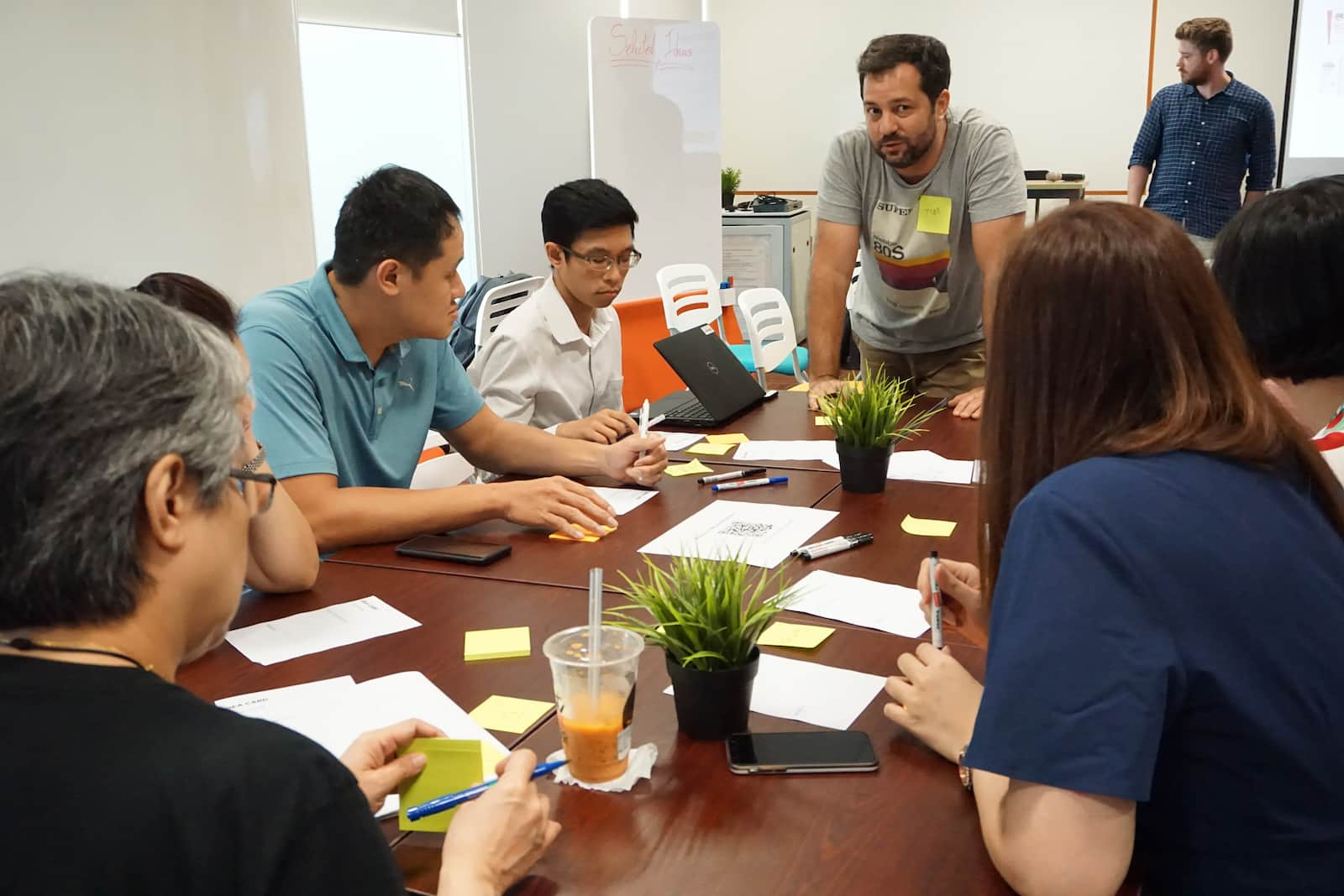Simplifying tax experience for Small and Medium Enterprises

Small & medium enterprise (SME) owners want to fulfil their tax obligations, but often find themselves getting caught up in the running of their businesses and therefore face challenges in understanding their tax obligations and in preparing their tax submissions.
Find out how IRAS adopted a human-centric approach to understand the needs of SMEs, identify pain points, and design solutions to make the tax experience a more positive one.
All businesses that operate in Singapore have to pay taxes. The process of preparing and filing their taxes will require some time and effort. Business owners often have to balance the running of their businesses with the fulfilment of their tax obligations, so paying taxes may not always be at the top of their minds.
Seeking to address new challenges brought about by rapid technological advances and increasing public expectations of higher levels of service, IRAS embarked on a transformation journey in 2016, leveraging analytics, design and digitalisation to redefine the experiences of taxpayers, as well as the experiences of staff working in IRAS.
At the Public Sector Transformation Workshop on 18 July 2019, three members of the service design project team - Ms Angela Ang, director of strategic planning at IRAS; Ms Jocelyn Ong, senior tax officer at IRAS corporate tax division; and Mr Eduardo Kranz, design director at Fjord, shared how the project team deep dived into the experiences of SMEs in interacting with IRAS, co-created solutions with the SMEs, and implemented solutions to address the needs that were uncovered.

Reaching out to understand SMEs and other stakeholders
In order to gain a deeper understanding of the SMEs, the project team visited and spoke to SMEs from various industries such as transportation, food, real estate, finance and manufacturing.
We carried out 45 in-depth interviews—sitting down with SMEs in their native working environment to try and understand what their reality was and engaging with other stakeholders such as software providers, tax agents, government agencies and members of the tax community (SIATP) to understand the ecosystem of SMEs.
~ Mr Kranz
The IRAS team then synthesised findings from the interviews and created archetypes of the SMEs to personify their profile and characteristics. With a deeper understanding of the SMEs’ pain points, the team engaged SME owners/employees, representatives from other government agencies and IRAS staff to brainstorm and co-create approximately 600 ideas that could help to resolve the pain points and improve the experiences of the SMEs.
Based on insights from the interviews and the ideation workshop, the team then developed a future-state journey map for SMEs to guide IRAS’ efforts to create a positive future experience for these SMEs.
And with that, it was time to enter the next phase of prototyping.
From idea to action
Having observed that the first tax filing was a key pain point for newly-incorporated SMEs, the team decided to focus on developing a digital onboarding tool for newly-incorporated companies to help them set up correctly from the start and, hence, build confidence in them.
The aim of the digital onboarding tool was to provide relevant, bite-sized tax-related information to newly incorporated companies at the point of incorporation of their business so that they can have ample time to prepare and fulfil their tax requirements.
The working prototype was tested through a series of user experience tests with selected SMEs and stakeholders to gather feedback for improvements and to ensure that it was easy to use.
IRAS deployed the digital onboarding tool, called the ‘New Company Start-Up Kit’, and started reaching out to a pilot group of about 3,500 newly-incorporated companies starting in January 2018.
The Start-Up Kit helps newly-incorporated SMEs generate a tailored filing timeline, displaying critical information such as tax filing due dates based on the business’ date of incorporation and first financial year-end. Through the Start-Up Kit, SMEs will receive filing reminders at an email address of their choice, as well as advice on any subsequent steps they need to take.
~ Ms Ong
Bearing in mind that SMEs’ interaction with government agencies is not limited to IRAS, IRAS further enhanced the Start-Up Kit by adopting a cross-agency collaborative approach to bring on board other government agencies that the SMEs will need to engage during the course of setting up their business and during its operation.
IRAS reached out to ACRA to also incorporate their filing requirements in the Start-up Kit. With this information reflected in the kit, SMEs can now view their filing timelines for both IRAS and ACRA, all in one place.
IRAS will continue to explore collaborations to make the Start-Up Kit useful, relevant and informative for SMEs.
Design is about redefining experiences for taxpayers and staff… our journey was anchored on what really mattered to the people we were serving. We have about 2,700 users [of the New Company Start-Up Kit] today, and we’re now trying to educate more new companies about the availability of this tool.
~Ms Ong

